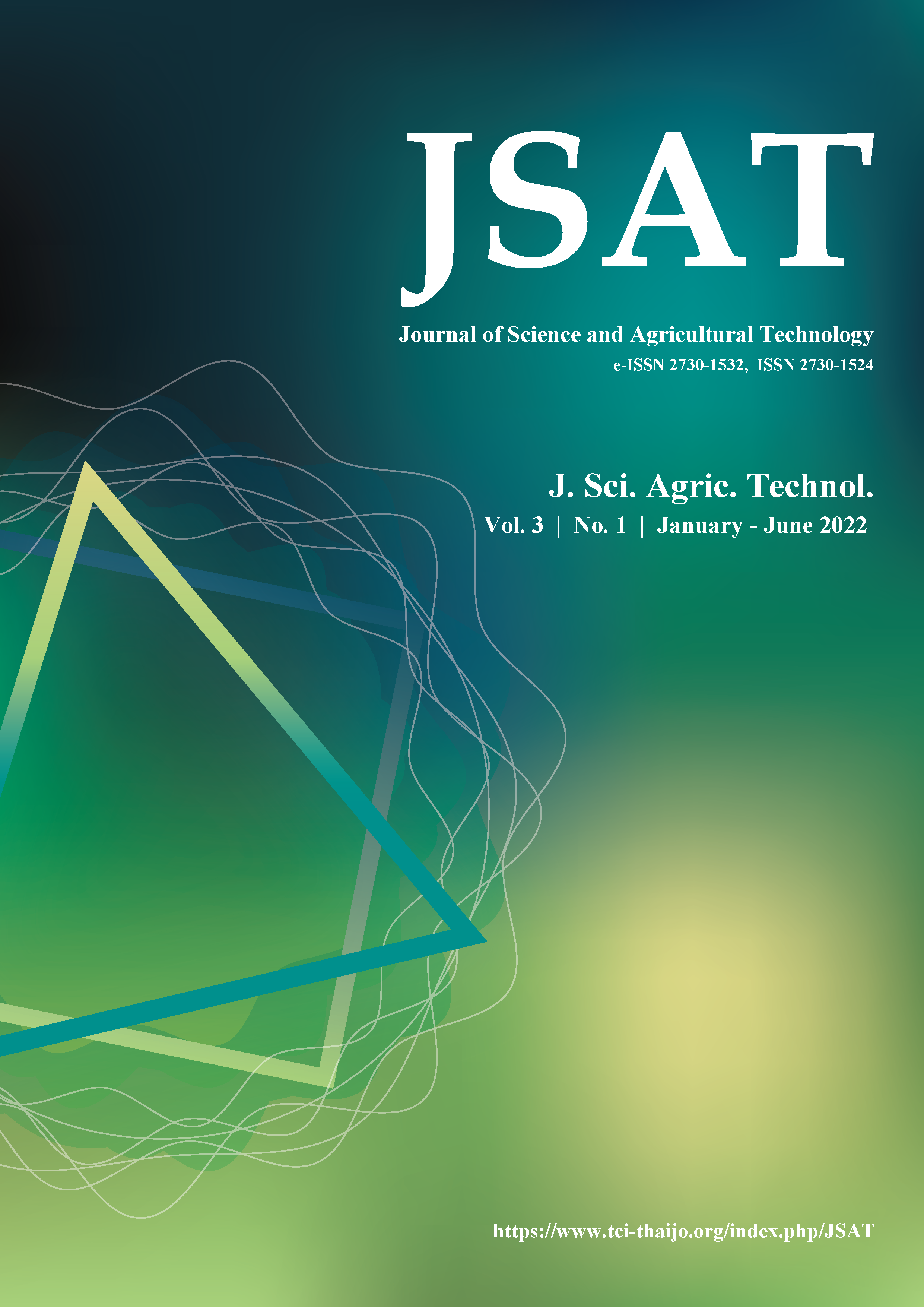Comparison of hemp (Cannabis sativa L.) seed oil by conventional and soxhlet extraction methods
Main Article Content
Abstract
Hemp (Cannabis sativa L.) is a multi-purpose plant that recently get lots of attention in Thailand. In previous years, there are various studies have been done regarding to the application of hemp fiber, especially in textile sector. After the government has unlocked regulation regarding to hemp cultivation and its application, hemp seed has become remarkable part as oil content in the seeds can be used for multiple purposes. Extraction process of hemp oil become more important in order to get higher yield. So, this research interest has been focused to compare the extraction methods of conventional and soxhlet extraction using water, n-hexane and petroleum ether as extraction solvent. The experimental results showed that conventional extraction method for hemp seed oil using n-hexane has highest yield of 18.78%, followed by petroleum ether of 17.06%, and water of 4.56%. In addition, soxhlet extraction method using petroleum ether showed significantly (p≤0.05) highest yield of 24.44% compared to those of n-hexane 21.65% and of water 1.27%. According to the experimental results, it was concluded that soxhlet extraction method using petroleum ether as extraction solvent is recommended in order to get higher oil yield from hemp seed.
Article Details

This work is licensed under a Creative Commons Attribution-NonCommercial-NoDerivatives 4.0 International License.
References
Deferne, J.L., and Pate, D. W. 1996. Hemp seed oil: A source of valuable essential fatty acids. Journal of the International Hemp Association. 3: 4-7.
Eikani, M.H., Golmohammada, F., and Homami, S.S. 2012. Extraction of pomegranate (Punica granatum L.) seed oil using superheated hexane. Food and Bioproducts Processing. 90: 32-36.
Feldsine, P., Abeyta, C., and Andrews, W.H. 2002. Methods committee guidelines for validation of qualitative and quantitative food microbiological official methods of analysis. Journal of AOAC international. 85: 1187-1200, https://doi.org/10.1093/jaoac/85.5.1187.
Hu, B. Xi, X. Li, H. Qin, Y. Li, C. Zhang, Z. Liu, S., and Luo, O. 2021 A comparison of extraction yield, quality and thermal properties from Sapindus mukorossi seed oil between microwave assisted extraction and Soxhlet extraction. Industrial Crops & Products 161: 113185.
Lavenburg, V.M., Rosentrater, K.A., and Jung, S. 2021. Extraction methods of oils and phytochemicals from seeds and their environmental and economic impacts. Processes. 9: 1839. https://doi.org/10.3390/pr9101839.
Lima, D.S. 2021. Technological quality and sensory acceptability of nutritive bars produced with Brazil nut and Baru almond coproducts. LWT- Food Science and Technology. 137:110467.
Pinmanee, S. 2019. Hemp varieties and legally certified seeds. The Highland Research and Development Institute (Public
Organization). https://www.hrdi.or.th/articles/detail/47 (in Thai)
Porto, C.A., Porretto E., and Decorti, D. 2013. Comparison of ultrasound-assisted extraction with conventional extraction methods of oil and polyphenols from grape (Vitis vinifera L.) seeds. Ultrasonics Sonochemistry. 20: 1076–1080.
Rehault-Godbert, S., Guyot, N., and Nys, Y. 2019. The golden egg: Nutritional value, bioactivities, and emerging benefits for human health. Nutrients. 11(3): 684. https://doi.org/10.3390/ nu11030684
Voleka , Z., Ebeidb, T.A., and Uhlirova, L. 2018. The impact of substituting soybean meal and sunflower meal with a mixture of white lupine seeds and rapeseed meal on rabbit doe milk yield and composition, and the growth performance and carcass traits of their litters. Animal Feed Science and Technology. 236: 187-195.


